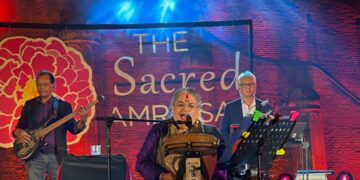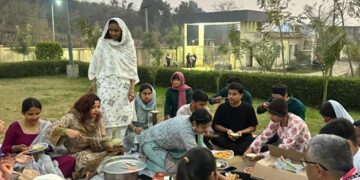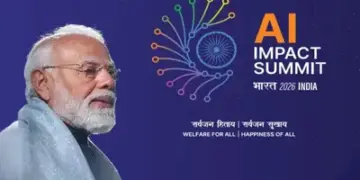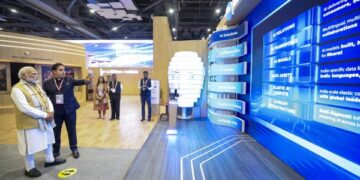By: M Ahmad
Differently-abled persons can be anyone from tax consumers to tax payers, from beneficiaries to benefactors, given the opportunity for self-development and provided with equal opportunities of education, vocational training and employment.
When we look back in time we find that the beginnings of works for the disabled leading to better opportunities, more services and programmes were initiated in many cases either by the disabled themselves or by their families. Perhaps the best example of this is Louis Braille, the inventor of what is now come to be known as the Braille Script which has provided blind people with the most satisfactory means of reading and writing by touch. Braille indeed opened the flood gates of knowledge to the blind and removed one of the major obstacles in the path of equalization of opportunity for blind people.
Leading organisations for disabled people in India providing educational, vocational training and employment services were established by family members. Mrs. Fatima Ismail, the mother of a Polio affected child was the founder of the Fellowship of the Physically Handicapped in Bombay. Mrs. Mithu Alur, the mother of a Spastic child established the Spastic Society of India. The motivating spirit behind the establishment of the organisation for the blind in the country was Mr. R. M. Alpaiwalla, a blind lawyer and its founder President for the first ten years.
Since the ’70s, organisations of differently-abled persons have come into being in most countries. Perhaps the earliest of these organisations was the Blind Men’s Association of Bombay established in 1974 by a group of blind persons. Today there are a number of similar organisations in India including the National Federation of the Blind and the All India Confederation of the Blind.
Economic independence is the most important single factor that can lead to equalization of opportunity and meaningful existence with self-respect and dignity. In the developed and more affluent countries, economic independence can also be secured through social security measures. In the developing counties however, social security is virtually non-existent and hence employment with adequate wages is of prime importance. The disabled need jobs even more desperately than the able bodied but as may be expected with unemployment and underemployment plaguing the countries in the Third World, they find themselves on the lowest rung of the ladder. For most disabled people getting a job is difficult. By and large those who do succeed in finding jobs are able to do so in the lowest paid ones requiring little skill or ability – very often, far below their abilities and potential.
Education and vocational training facilities for the differently-abled people in most developing countries have remained stagnant. While science and modern technology have made tremendous leaps in the later half of the 20th century opening up new avenues and new horizons for the able-bodied, the disabled are still being trained in traditional crafts and not in modern technology trainings and techniques.
Differently-abled people themselves and their families cannot and should not wait for Governments and agencies / institutions to take action to improve the situation. They must now take steps themselves to initiate change. Most Governments in the developing countries are faced with gigantic problems of economic growth, industrial development, social upliftment, health, building up of an infrastructure and so on. The disabled are only a small proportion of the general population and hence receive a low priority in their developmental plans.
Unfortunately, the organisations of the differently-abled have, in recent years, indulged in rivalry and infighting. This has resulted in dissipation of their energies. Such a trend must end and these organizations can then play a very important role in achieving equalization of opportunities by coordinating their efforts and acting in cooperation with the agencies. Working jointly with the agencies, they could become a strong force in persuading Governments to recognize the rights of the disabled and providing for equal opportunities.
The family plays the most crucial role in the life of a disabled person. Apart from basic personality traits of the person concerned, it is the attitude and the actions of the members of the family that determine the future course of the life of the disabled person. It is here that equalization of opportunities needs to and must begin. A differently-abled child rejected overtly or covertly by the family or at the other end of the scale given preferential treatment is most likely to grow up into an adult with unhealthy attitudes towards himself and towards society. It is imperative, therefore, that the family treats a disabled member as part of the family without either rejection or “special” treatment. The family should provide equal opportunities of education, work, and socialization. This is the best training the family can provide and it is also a means of assuring that the disabled member is treated normally by other relations, friends and neighbours. Families can provide for some of the special needs of disabled people e.g. reading for the blind, assistance in mobility for the physically handicapped, interpretation for the deaf. Most important of all the family can encourage and motivate independence to the extent possible depending upon the degree of impairment.
Differently-abled people in many developing countries are now taking the lead in promoting and setting up of much needed services and bringing about a change in attitudes towards disability. However, significant changes in attitudes and true equalization of opportunities will occur only when these people fully accept their responsibilities to contribute to the betterment of the community and society.
The writer isIncharge, Abhedananda Home-Higher Secondary Institution for Specially-abled Children, Solina, Srinagar, J&K email: abhome78@gmail.com)








